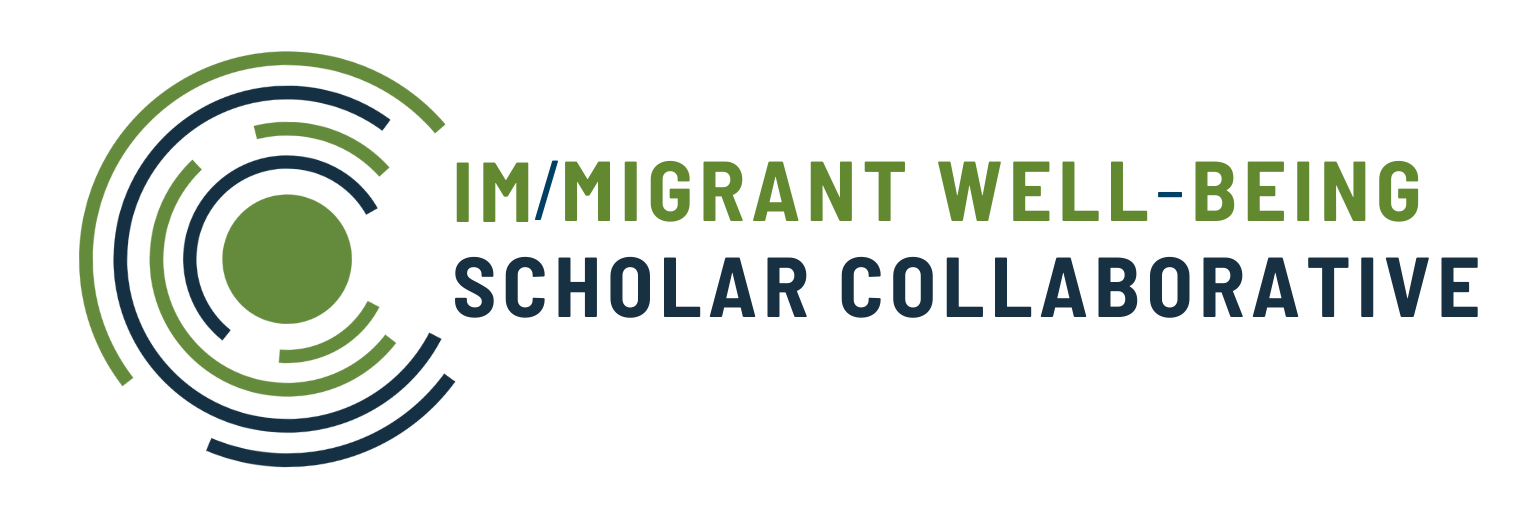In the United States’ dynamic society, immigrants play an essential role in shaping its cultural, economic, and social landscapes. Approximately 46 million individuals born outside its borders contributed to a rich mosaic of experiences, dreams, and challenges in 2022¹. Among these vicissitudes, mental health emerges as a critical yet often overlooked concern, cutting across varied backgrounds and circumstances.
Structural challenges, notably immigration laws, not only restrict access to necessary services but also add to the stressors burdening immigrants and their families². Moreover, crises such as the COVID-19 pandemic and its aftermath further expose and deepen socio-economic inequities, highlighting the urgent need for holistic public health strategies and empathetic policy reforms.
This blog delves into the mental health landscape among immigrants in the United States, examining the interplay of social determinants and policy on their lives. Drawing from literature, personal insights, and an exploration of systemic barriers, I aim to illuminate the complexities of this issue. This discussion is not just a call to awareness but a call to action, urging policymakers, community leaders, and the public to consider mental health as a pivotal aspect of the immigrant experience and a critical component of public health policy.
Background: Navigating New Frontiers – Immigrant Lives in the United States
Immigration in the U.S. has been marked by continuous evolution, shaped by the nation’s need for newcomers and the complexities of global migration. Historically, the United States has seen waves of immigration that have profoundly influenced its socioeconomic landscape. From the establishment of the British colonies to the present-day services- and knowledge-based economy, immigrants have been vital in driving fundamental transformations³. However, the journey from open doors to a more regulated system reflects the contentious nature of immigration, which has become increasingly politicized in recent decades⁴. The onset of the COVID-19 pandemic further illustrated the link between immigration and societal health, exposing the vulnerabilities of undocumented and documented immigrants⁵⁶.
Overrepresented among frontline workers and underserved by the healthcare system, undocumented immigrants faced compounded challenges⁷. Exclusion from governmental pandemic aid and heightened exposure to COVID-19 due to their essential roles in the workforce spotlighted the critical intersection of legal status, employment, and health disparities⁸. These conditions, rooted in policies that normalize the unequal treatment of noncitizens, have emphasized the indispensability of immigrants in maintaining societal and economic frameworks, even as they navigate barriers to mental health access, discrimination, and economic uncertainties.
Addressing these issues requires a nuanced understanding of the immigrant experience, informed by both historical context and contemporary challenges, including the legal violence and compounded vulnerabilities exacerbated by the pandemic⁹. This understanding must guide our approach to developing empathetic, inclusive policies that not only recognize the contributions of immigrant communities but also address the systemic barriers they face in accessing mental health care.
Challenges and Data
The journey to a new country can evoke a myriad of emotions and outcomes, ranging from hopeful ambitions to profound mental health challenges. Encountering discrimination, language barriers, and socioeconomic obstacles, immigrants face a stark reality that often contradicts their aspirations¹⁰. These hardships are amplified by complex immigration policies that influence their access to vital services and acceptance within society.
Notably, immigrants utilize mental health services less frequently than their non-immigrant counterparts, despite facing similar or greater needs¹¹ ¹². Studies have found that immigrants from specific backgrounds can be up to 40% less able to access mental healthcare resources when compared to Americans¹³. This underutilization stems from a range of barriers, including financial constraints, cultural stigmatization, and fears associated with legal status, leading many to rely on informal support networks over professional care¹⁴ ¹⁵. Such disparities expose the critical role of policy in shaping immigrants’ mental health outcomes. For instance, programs like the Deferred Action for Childhood Arrivals (DACA) illustrate how policy shifts can significantly affect immigrants’ mental well-being, providing temporary relief yet also a renewed sense of vulnerability amid changing administrations¹⁶. Further fortifying the intersections of immigration law and mental health support, legal frameworks such as the Violence Against Women Act (VAWA) and the U nonimmigrant status (U visa), designed for victims of crimes who assist law enforcement, offer pathways for those affected by abuse and violence to seek help without fear of deportation¹⁷.
Personal narratives of immigrants, like my own, shed light on the complex interplay of hope, resilience, and mental health struggles. Leaving behind everything familiar at age 19, I faced the daunting challenge of adapting to a new culture, language, and educational system. The cultural shock was more than just adjusting to a new country’s customs and norms; it was the realization of being an outsider, trying to find my footing in a place that was vastly different from what I had known. The depression that ensued was a silent struggle, compounded by the denial and misunderstanding of mental health within my family and cultural context. The question that lingered was, “How could I be depressed in a country that offers so much opportunity?” This internal conflict, between gratitude for the new opportunities and a pervasive sense of not belonging coupled with imposter syndrome, created an invisible barrier to seeking help. A sense of denial within me and among those around me further reinforced that barrier. Whenever I tried to express feelings of depression, it was swiftly dismissed with assertions that such feelings were either impossible or nonexistent, especially here in the U.S., where the prevailing narrative for immigrants is one of gratitude and opportunity. The stigma surrounding mental health, paired with a lack of awareness and resources, meant navigating these challenges alone. My experience reinforces the necessity of acknowledging and addressing mental health within immigrant communities, advocating for comprehensive solutions that foster an environment where seeking help is not muffled by stigma or denial.
Solutions and Recommendations
Solutions should draw upon culturally sensitive approaches, community engagement, and inclusive policies¹⁸ ¹⁹. My own journey as an immigrant, navigating mental health challenges in silence showcases the urgent need for interventions that resonate on a personal level. This experience is not unique to me; it reflects a widespread issue that necessitates addressing familial stigmas and promoting mental health literacy in immigrant communities.
Prioritizing culturally competent care and leveraging the inherent resilience within immigrant communities are foundational steps toward dismantling the barriers to mental health services. Community-based initiatives, such as those led by Immigrants Rising²⁰, not only provide stability but also counteract the sense of alienation and imposter syndrome many immigrants experience. Founded as Educators for Fair Consideration (E4FC), Immigrants Rising has been transforming the lives of undocumented students through education and comprehensive support for over 15 years. Their programs offer mental health services, wellness resources, and career guidance, fostering a holistic approach to immigrant wellness that extends beyond traditional mental health support.
Organizations such as the Coalition for Immigrant Mental Health (CIMH) and the National Institute of Minority Health and Health Disparities further address these needs through advocacy, research, and intervention programs²¹ ²². However, the challenge remains in effectively connecting these resources with the immigrants who need them most. Governmental agencies, healthcare providers, and the media must play a pivotal role in linking these invaluable services to immigrants, ensuring that newcomers are aware of and can access these supports upon their arrival in the country. Furthermore, training professionals across sectors in cultural sensitivity and fostering partnerships with faith leaders and educators would equip key stakeholders with effective tools to meet immigrants’ needs, emphasizing the crucial role of immigrant representation in mental health professions and the importance of addressing stigma within families²³ ²⁴. Mental health support must be accessible and inclusive, providing a safe haven for all immigrants, irrespective of their documentation status.
By embracing a holistic, compassionate approach to mental health support, we pave the way for a future where every immigrant can thrive, contributing to their new communities with vitality and strength. Addressing mental health care disparities through early intervention, community support, legal assistance, and cultural sensitivity is not just an act of service but a testament to our shared humanity. In this collective endeavor, we not only acknowledge the struggles of immigrants but also celebrate their resilience and contributions to our societies.
Liz Ventura Molina serves as Research Development Lead at the Im/migrant Well-Being Scholar Collaborative.

